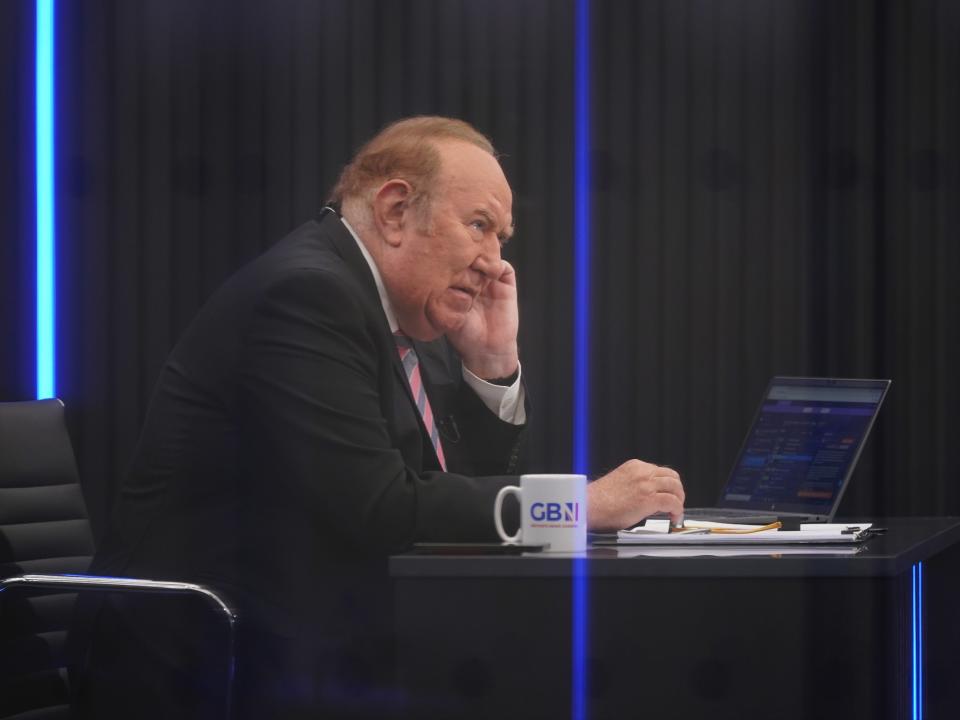Advertisers may soon have no option but to work with GB News

Advertiser boycotts whip up a lot of publicity, as we have seen this week with a number of companies, including Ikea, Kopparberg and Octopus Energy, deciding to drop adverts on the fledgling British news channel GB News. But do they work?
We will have to wait and see what happens to GB News as a business. It may be troubled by a temporary loss of revenue, though it may turn out to have benefitted by the wave of additional publicity the boycott has generated. Come back to that in a moment and look at the biggest recent example of a large-scale media boycott – what happened to Facebook last year. More than 1,000 companies pulled out last June and July, including huge enterprises such as Walmart, Coca-Cola, and McDonald’s.
They were pushed to do so by pressure groups such as Stop Hate for Profit, which argued that “the platform’s algorithms recommend and spread inflammatory, divisive and inaccurate content to maximise user engagement and drive up advertising revenue”.
Have things changed? Stop Hate for Profit says that Facebook has made some progress but overall gives it a red rating for only making incremental changes.
On the other hand, if you look at Facebook in business terms, it has continued to prosper mightily. Its share price did dip at the end of June last year for a week or so, but it shot up in August and at $331 a share, it stands more than 40 per cent up on the year. That values the company at $939bn, making it much larger than the companies that paused their advertising. Walmart is worth $394bn, Coca-Cola $236bn, and McDonald’s $177bn. In terms of financial power, Facebook has the bigger guns.
The balance of power is quite different in the case of GB News. It is a new company, led by journalists including Andrew Neil. Its largest single backer is the UK-registered affiliate of the Discovery Channel in America, but the initial funding of some £60m is not, in the world of media, big money.
Most of the advertisers that have withdrawn are in a different league. The campaign is led by Stop Funding Hate, a relatively small operation founded in 2016. But the companies it is influencing are massive. Many are foreign. Ikea is huge and indeed controversial. Andrew Neil pointed out that its French chief executive had been given a two-year suspended jail sentence for spying on the company’s staff.
Ikea is of course Swedish, as is Kopparberg, a large drinks company. Grolsch, another company that has pulled out, is Dutch. Nivea, which has also withdrawn from GB News advertising, is owned by a German firm; the ultimate owner is the German billionaire Michael Hertz. Bosch, the German manufacturing group, which is also reported to have withdrawn, is perhaps the biggest of all, with 400,000 employees around the world.
By contrast, the UK withdrawers tend to be smaller. Octopus Energy is owned by City fund managers Octopus Capital, founded in 2000. Moneysupermarket, a price comparison website valued at £1.43bn, pulled its advertising but quickly reversed the decision and it will be interesting to see how many other companies follow suit. Indeed the two really high-profile companies that are reported to have pulled out, Vodafone and the Co-op, seem to have rowed back. There also seems to be some ambivalence at Octopus, with stories that it is merely waiting to see how well GB News develops before deciding whether to advertise or not.
This will take some weeks to settle down. If the fears of Stop Funding Hate prove justified, then GB News will indeed have a tough time recruiting and retaining advertisers. On the other hand if it manages to establish a reputation for fair-minded, centre-right reportage and that pulls in prosperous viewers, then they will be an attractive market that advertisers cannot ignore.
GB News will not be for everyone. I suspect that many Ikea customers, trying to furnish their first home on a budget, will not be their natural audience. Wealthy mid-life professionals on the other hand probably are – and they are hard to reach. But we will see.
As for the pressure groups, they have surely been a helpful force chivying companies towards better social and environmental practice. They deserve credit for that. But ad boycotts are a double-edged sword. For every customer that supports them there will be another who is appalled. And in the case of Facebook at least, that ad boycott last summer seems to have had zero effect on the company’s financial success.
Read More
Why making the Covid-19 vaccine a legal requirement for healthcare workers is a bad idea
The Republican Party is now the most dangerous threat in the world
This is nothing more than another false dawn for the Liberal Democrats

 Yahoo Finance
Yahoo Finance